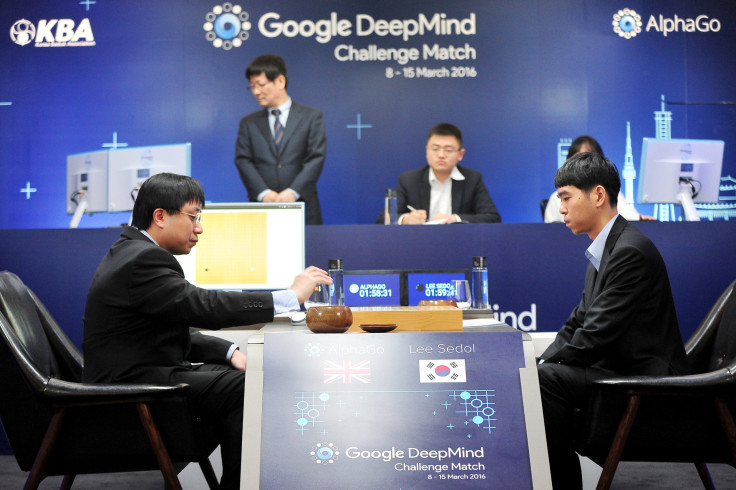DeepMind’s AI Program AlphaGo Beats Go World Champion Lee Se-dol

In the first of five scheduled games, the artificial intelligence program developed by Google’s DeepMind has beaten the world champion Go player Lee Sed-ol in what is seen as a milestone for AI research.
The game, which took place in the Four Seasons Hotel in Seoul, South Korea, took three-and-a-half hours to complete with Lee resigning with over 28 minutes left on his game clock. Speaking after the game, Lee said: "I was very surprised. I didn't expect to lose. [But] I didn't think AlphaGo would play the game in such a perfect manner."
Over 100,000 people tuned in to watch the livestream of the game on YouTube, with commentary provided by Chris Garlock from the American Go E-Journal, and professional Go player Michael Redmond. “AlphaGo won. You saw it here,” said Garlock. “Right off the bat — the first game, and AlphaGo takes down Lee Sedol.”
The total number of moves in the game was 186, with AlphaGo taking 23 minutes more to complete its moves than Sedol. The game was neck-and-neck throughout and despite Lee's aggressive start, AlphaGo was able to counter all his attacks.
The second game in the series will take place Wednesday (beginning at 11 p.m. EST) with the overall winner of the five-game series taking home a $1 million prize. DeepMind says it will donate the prize to charity should it win.
#AlphaGo WINS!!!! We landed it on the moon. So proud of the team!! Respect to the amazing Lee Sedol too
— Demis Hassabis (@demishassabis) March 9, 2016
Go is an ancient Asian board game, played primarily in China, Korea and Japan, and sees two players taking alternate turns to place black and white tiles on a grid, attempting to occupy more of the board than their opponent. It has many more possible moves and outcomes compared to chess, and has long been considered the most challenging game for a computer to master.
AlphaGo had already made waves in the Go world when it beat the European champion Fan Hui last year, but beating Lee is a much more significant achievement. Lee is ranked first in the world and is a 9-dan player, on the dan scale of professional rankings, which runs from 1 to 9 (Hui is a 2-dan player). Lee also has the second-highest number of international titles ever won in the history of Go.
Huge milestone in AI! AlphaGo beats the world champion Lee Sedol! We made history! What an incredible moment! :-) pic.twitter.com/Un4imciEYS
— Mustafa Suleyman (@mustafasuleymn) March 9, 2016
Ahead of the game, Lee was confident of winning, saying: “I believe it will be 5–0 or maybe 4–1. So the critical point for me will be to not lose one match.” However in the days before the opening game, Lee added a note of caution.
“Playing against a machine is very different from an actual human opponent,” Lee said. “Normally, you can sense your opponent’s breathing, their energy. And lots of times you make decisions which are dependent on the physical reactions of the person you’re playing against. With a machine, you can’t do that.”
© Copyright IBTimes 2025. All rights reserved.





















